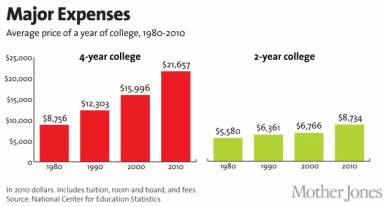ATTENTION CLASS OF 2016!

March 9, 2016
Have you began thinking about college yet? Has it been stressing you out on where to go? Some students already know where their going and what they are going to major in. Though, other students haven’t even took the time to think about it.
If you already know where you’re going and what you’ll major in, that’s good! Though, have you took time to evaluate all of your options. For those of you who are unsure on everything or a couple things, let’s take a look at some options.
Many high school graduates attend a community college. For our area Oakland Community College, widely known as OCC, is a big community college. Whether they get a 2-year Associate’s Degree or follow a transfer plan and transfer their credits to a four-year university, they are getting the same education they would anywhere else.
“Make your own plan. Everyone is on an individual journey, and should not be worrying what ‘everyone’ else is doing,” said, OCC Orchard Ridge Campus Counselor, Nancy Thelen.
According to Thelen, maturity is a big factor in determining the type of college you should attend. In handling life, successfully, students on their own at a 4-year college may be set up for a bad start and ‘practicing’ at a community college is better for them. For other students who are mature, and money is not an issue, a 4-year university would be good for them.
She has also included that it is taking most students more than just 4 years to complete a full 4-year degree.
Majority of the time a community college instructor is a professor from a nearby university. To those who don’t know, transferable credits have the same rigor as lower level university credits. The credits taken at a community college are completed at lower costs (no room and board fees attached to them) and also are placed at more convenient times to the students. Community colleges also provide more resources to the students as a way to help them with classes.
“ I frequently speak with students completing math requirements from local universities [often MSU] at OCC because of the support they can get here [such as] math labs, tutoring, study leaders for the class, and access to the instructor,” included Thelen.
2015 Milford Graduate, Kyle Liedel, has followed the community college transfer plan. He likes the fact that it isn’t a far drive and many people that he attended high school with he still gets to see, since they also attend OCC. Though, to him, the most beneficial things is the amount of money he is saving.
“I’m still getting the same education and credit count that I would be getting at an expensive university, I’ve saved an incredible amount of money,” said Liedel.
According to Liedel, you are able to still figure out what career path you want to follow while taking general courses, but you’re stilling getting a feel for college instead of just taking the year off.
Milford Senior, Karen Danner, also plans on attending a community college before a major university as well, but is still unsure and may be leaning toward a university. She doesn’t know how many of her credits will transfer and wants to surrounded by the same people throughout her college experience.
“Though I think it is a smart idea to go to a community college to get all of your prerequisite classes out of the way, I just believe that it might not be the right fit for every graduating student,” said Danner.
Many believe this is an intelligent way to take on the college experience. Though you will be missing out on part of the college experience, you will be saving thousands and still obtaining the same credits and education as equivalent to a 4-year university.
A student at a community college(in-state) would be spending around $2,017 annually, whereas a full-time student at a 4-year university would spend around $5,685 annually (not including room and board).
Though you won’t know the full dorm/campus life, you will be helping your future self by saving a lot of money and not having to worry about paying off student loans while trying to pay other bills while living on your own.
A helpful tip, to anyone still pondering their future, from Thelen is, “Always have a plan B [because] life is full of surprises!”
To find out how your credits will transfer:
- Go to the university website that you plan on attending after your community college.
- In the search bar, type transfer plans
- Pick the community college that you will be, or are currently, attending
- A list should appear
- NOTE: all universities are different – you may get a list or you may have to search each class individually
Overall advantages to a transfer plan:
- Save thousands
- Small class sizes
- FAFSA
- Federal Student Aid
- They offer more than $150 billion/year to help student pay for college
- Federal Student Aid
- Scholarships
- Online capabilities
- Transfer agreements (with 4-year universities)